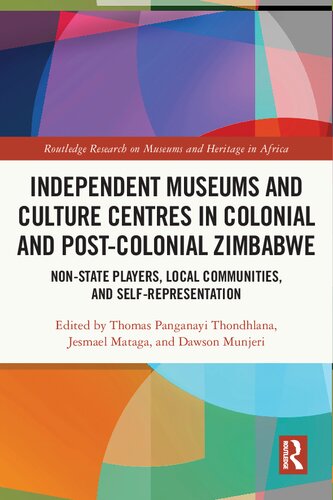

Most ebook files are in PDF format, so you can easily read them using various software such as Foxit Reader or directly on the Google Chrome browser.
Some ebook files are released by publishers in other formats such as .awz, .mobi, .epub, .fb2, etc. You may need to install specific software to read these formats on mobile/PC, such as Calibre.
Please read the tutorial at this link: https://ebookbell.com/faq
We offer FREE conversion to the popular formats you request; however, this may take some time. Therefore, right after payment, please email us, and we will try to provide the service as quickly as possible.
For some exceptional file formats or broken links (if any), please refrain from opening any disputes. Instead, email us first, and we will try to assist within a maximum of 6 hours.
EbookBell Team

5.0
48 reviewsIndependent Museums and Culture Centres in Colonial and Post-colonial Zimbabwepresents case studies that grapple with the issue of 'decolonising practice' in privately owned museums and cultural centres in Zimbabwe. Including contributions from academics and practitioners, this book focuses on privately-run cultural institutions and highlights that there has, until now, been scant scholarly information about their existence and practice. Arguing that the recent resurgence of such museums, which are not usually obliged to endorse official narratives of the central government, points to some desire to decolonise and indigenise museums, the contributors explore approaches that have been used to reconfigure such colonially inherited institutions to suit the postcolonial terrain. The volume also explores how privately-owned museums can tap into or contribute to current conversations on decoloniality that encourage reflexivity, inclusivity, de-patriarchy, multivocality, community participation and agency. Exploring the motives and purpose of such institutions, the book argues that they are being utilised to confront deeply entrenched stigmatisation and marginalisation. Independent Museums and Culture Centres in Colonial and Post-colonial Zimbabwe demonstrates that postcolonial African museums have become an arena for negotiating history, legacies, and identities. The book will be of interest to academics and students around the world who are engaged in the study of museums and heritage, African studies, history and culture. It will also appeal to museum practitioners working across Africa and beyond.